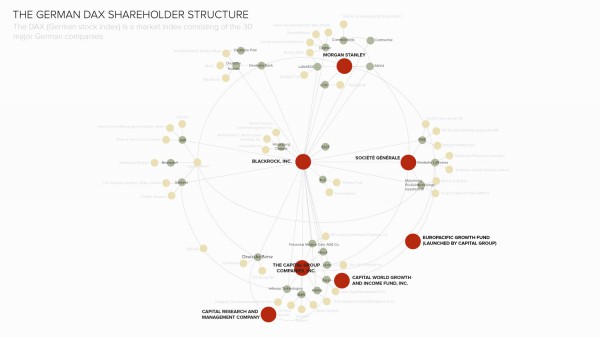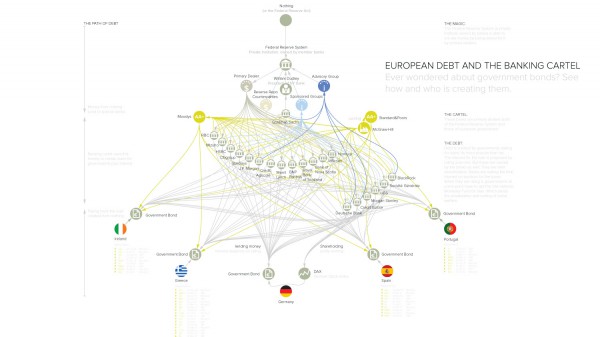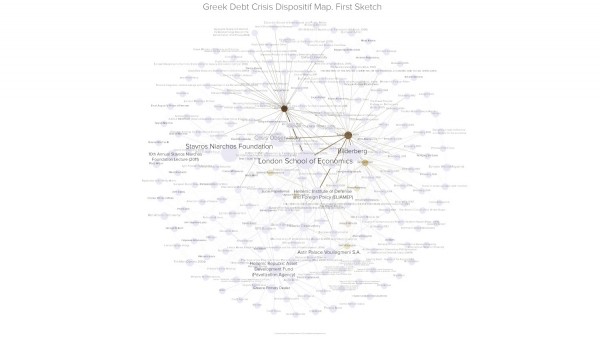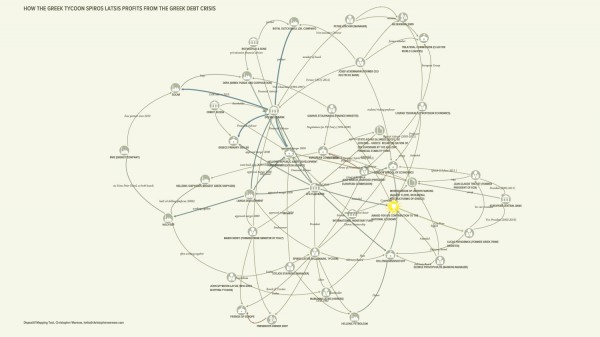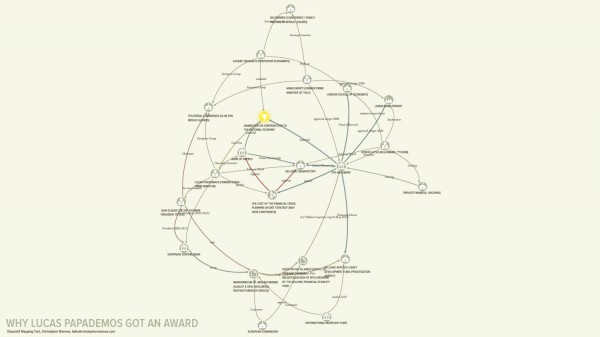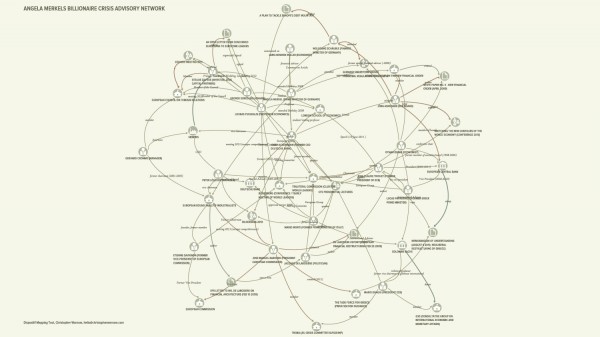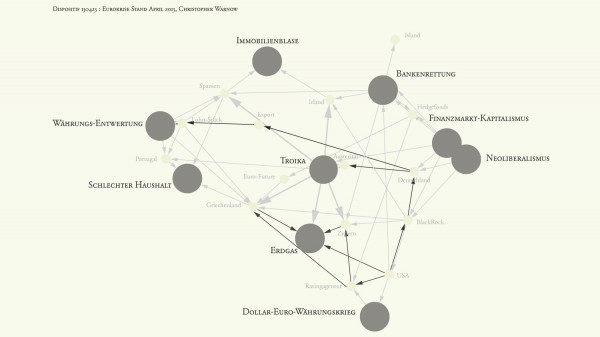
Dispositif Mapping
Krisen Visualisieren mit Hilfe von Netzwerkvisualisierung / Diagramme der Eurokrise
Diese Arbeit ist im Rahmen einer Masterarbeit in dem Bereich Informationsdesign 2013 an der Fachhochschule Würzburg-Schweinfurt bei Prof. Erich Schöls und Prof. Dr. Georg Schweppenhäuser entstanden.
Die Frage war, ob Design Konflikte kartografieren kann. Entstanden ist eine Netzwerkvisualisierung der griechischen Schuldenkrise 2009-2011, die in die Eurokrise eingebettet war. Es war ein Beispiel für die zugrunde liegende Idee, involvierte Akteure und Institutionen zu mappen, um einen Eindruck der Krisenstruktur zu bekommen.
Zwei Denker inspirierten mich. Zuerst Alexander Galloway, welcher ein Rezept für einen bestimmten Blick auf unsere Gesellschaft entwickelte:
We must simply describe todays’s mode of production in its many divergent details: the diffusion of power into distributed networks, the increase in local autonomous decision making, the ongoing destruction of the social order at the hands of industry, the segmentation and rationalization of minute gestures within daily life, the innovations around unpaid micro labour, the monetization of affect and the „social graph“, the entrainment of universalizing behaviour within protocol organization – these are the are the things unrepresentable.
– Alexander Galloway
Der zweite ist der französische Philosoph Michel Foucault und seine Idee des Dispositifs:
»a thoroughly heterogenous ensemble consisting of discourses, institutions, architectural forms, regulatory decisions, laws, administrative measures, scientific statements, philosophical, moral and philanthropic propositions–in short, the said as much as the unsaid. Such are the elements of the apparatus. The apparatus itself is the system of relations that can be established between these elements.«
– Michel Foucault
Zuletzt hat ein weiterer Franzose auf Foucaults Theorie aufgebaut. Gilles Deleuze fügt hinzu:
»they are machines that make one see and talk«
– Gilles Deleuze
Wenn man diese Bausteine aufeinander fügt und in ein Netzwerk modelliert, ergibt sich die Dispositif Map. Eine Alternative um Konflikte zu verstehen.
